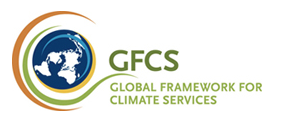A regional workshop in South East Europe (SEE) discussed pooling knowledge and expertise to improve the provision of user-friendly climate services in order to increase resilience against weather and climate extremes.
Attendees included meteorologists, hydrologists, disaster, health, water and agricultural managers, as well as representatives of the World Meteorological Organization (WMO), the World Health Organization (WHO) and the UN Development Programme (UNDP).
 24 November 2014: A regional workshop in South East Europe (SEE) discussed pooling knowledge and expertise to improve the provision of user-friendly climate services in order to increase resilience against weather and climate extremes. Attendees included meteorologists, hydrologists, disaster, health, water and agricultural managers, as well as representatives of the World Meteorological Organization (WMO), the World Health Organization (WHO) and the UN Development Programme (UNDP).
24 November 2014: A regional workshop in South East Europe (SEE) discussed pooling knowledge and expertise to improve the provision of user-friendly climate services in order to increase resilience against weather and climate extremes. Attendees included meteorologists, hydrologists, disaster, health, water and agricultural managers, as well as representatives of the World Meteorological Organization (WMO), the World Health Organization (WHO) and the UN Development Programme (UNDP).
Participants from Albania, Armenia, Azerbaijan, Bosnia-Herzegovina, Bulgaria, Georgia, Jordan, the former Yugoslav Republic of Macedonia, Montenegro, Romania, Serbia, Turkey and Ukraine attended the workshop, which took place from 21-22 November 2014, in Antalya, Turkey.
Filipe Lucio, Global Framework for Climate Services (GFCS), highlighted the potential of using climate services to improve planning and risk management in many socioeconomic sectors in order to cope with climate variability and long-term climate change. He explained that current science-based capability is not being “exploited to its full potential.” He called for investments to strengthen, inter alia, existing climate observation systems, research, information management systems, and institutional and human capacity, to factor climate information and services into policies. Erol Aydin, Turkish State Meteorological Service, stressed that climate services could contribute to the health, security and prosperity of citizens.
According to WMO, 70 countries currently lack the capacity to either develop or effectively apply climate services, including some in South Eastern Europe. The workshop agreed on an action plan to develop tailored climate services to support decision making in the GFCS priority areas (food security, health, water and disaster risk reduction). This effort will require the involvement of all stakeholders in order to generate knowledge, data, information, services and best practices.
More specifically, the workshop aimed to: review the current status of generating climate information in SEE countries and assess needs in the initial four GFCS priority areas; review the current status of interactions between climate services providers and users; identify capacity building needs; recommend improved arrangements for national observation networks and enhanced research and analysis of national and local climate issues; and identify, propose and prioritize ways to promote community understanding and awareness of climate variability and change.
The workshop aimed to facilitate the identification of mechanisms and networks to improve and sustain the flow of climate information for different users, and resulted in: increased understanding of the needs for climate services in different user sectors; improved knowledge of the existing mechanisms and recommendations for improvements where needed; understanding of capacity development needs to implement the GFCS at regional and national levels; and guidance on institutional arrangements required to operationalize the GFCS.
The Government of Turkey and the State Meteorological Agency of Spain organized the workshop. [WMO Press Release] [Workshop Brochure]